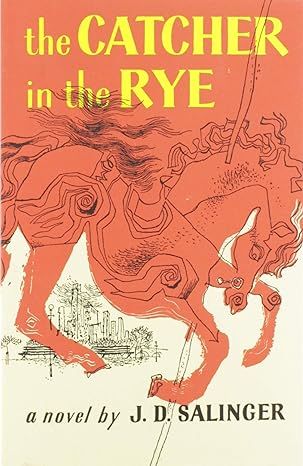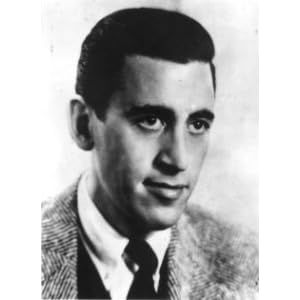The Catcher in the Rye
4.4
-
41,055 ratings
Anyone who has read J.D. Salinger's New Yorker stories--particularly A Perfect Day for Bananafish, Uncle Wiggily in Connecticut, The Laughing Man, and For Esme With Love and Squalor--will not be surprised by the fact that his first novel is full of children. The hero-narrator of The Catcher in the Rye is an ancient child of sixteen, a native New Yorker named Holden Caulfield.
Through circumstances that tend to preclude adult, secondhand description, he leaves his prep school in Pennsylvania and goes underground in New York City for three days. The boy himself is at once too simple and too complex for us to make any final comment about him or his story. Perhaps the safest thing we can say about Holden is that he was born in the world not just strongly attracted to beauty but, almost, hopelessly impaled on it.
There are many voices in this novel: children's voices, adult voices, underground voices-but Holden's voice is the most eloquent of all. Transcending his own vernacular, yet remaining marvelously faithful to it, he issues a perfectly articulated cry of mixed pain and pleasure. However, like most lovers and clowns and poets of the higher orders, he keeps most of the pain to, and for, himself. The pleasure he gives away, or sets aside, with all his heart. It is there for the reader who can handle it to keep.
Kindle
$9.99
Available instantly
Hardcover
$22.49
Paperback
$10.99
Spiral-bound
$20.11
Ships from
Amazon.com
Payment
Secure transaction
ISBN-10
0275965074
ISBN-13
978-0316769174
Print length
288 pages
Language
English
Publisher
Back Bay Books
Publication date
January 29, 2001
Dimensions
5.25 x 0.95 x 10.05 inches
Item weight
8.5 ounces
Popular Highlights in this book
Almost every time somebody gives me a present, it ends up making me sad.
Highlighted by 2,166 Kindle readers
Life is a game, boy. Life is a game that one plays according to the rules.
Highlighted by 2,075 Kindle readers
Don’t ever tell anybody anything. If you do, you start missing everybody.
Highlighted by 1,784 Kindle readers
Product details
ASIN :
0316769177
File size :
1159 KB
Text-to-speech :
Enabled
Screen reader :
Supported
Enhanced typesetting :
Enabled
X-Ray :
Enabled
Word wise :
Enabled
Editorial Reviews
"In Mr. Salinger we have a fresh voice. One can actually hear it speaking, and what is has to say is uncannily true, perceptive, and compassionate."―Clifton Fadiman, Book-of-the-Month Club News
"We read The Catcher in the Rye and feel like the book understands us in deep and improbable ways."―John Green
"A contemporary master--a genius...Here was a man who used language as if it were pure energy beautifully controlled, and who knew exactly what he was doing in every silence as well as in every word."―Richard Yates, New York Times Book Review
"Salinger's work meant a lot to me when I was a young person and his writing still sings now."―Dave Eggers
Sample
1
IF YOU REALLY WANT TO HEAR about it, the first thing you’ll probably want to know is where I was born, and what my lousy childhood was like, and how my parents were occupied and all before they had me, and all that David Copperfield kind of crap, but I don’t feel like going into it, if you want to know the truth. In the first place, that stuff bores me, and in the second place, my parents would have about two hemorrhages apiece if I told anything pretty personal about them. They’re quite touchy about anything like that, especially my father. They’re nice and all—I’m not saying that—but they’re also touchy as hell. Besides, I’m not going to tell you my whole goddam autobiography or anything. I’ll just tell you about this madman stuff that happened to me around last Christmas just before I got pretty run-down and had to come out here and take it easy. I mean that’s all I told D.B. about, and he’s my brother and all. He’s in Hollywood. That isn’t too far from this crumby place, and he comes over and visits me practically every week end. He’s going to drive me home when I go home next month maybe. He just got a Jaguar. One of those little English jobs that can do around two hundred miles an hour. It cost him damn near four thousand bucks. He’s got a lot of dough, now. He didn’t use to. He used to be just a regular writer, when he was home. He wrote this terrific book of short stories, The Secret Goldfish, in case you never heard of him. The best one in it was “The Secret Goldfish.” It was about this little kid that wouldn’t let anybody look at his goldfish because he’d bought it with his own money. It killed me. Now he’s out in Hollywood, D.B., being a prostitute. If there’s one thing I hate, it’s the movies. Don’t even mention them to me.
Where I want to start telling is the day I left Pencey Prep. Pencey Prep is this school that’s in Agerstown, Pennsylvania. You probably heard of it. You’ve probably seen the ads, anyway. They advertise in about a thousand magazines, always showing some hot-shot guy on a horse jumping over a fence. Like as if all you ever did at Pencey was play polo all the time. I never even once saw a horse anywhere near the place. And underneath the guy on the horse’s picture, it always says: “Since 1888 we have been molding boys into splendid, clear-thinking young men.” Strictly for the birds. They don’t do any damn more molding at Pencey than they do at any other school. And I didn’t know anybody there that was splendid and clear-thinking and all. Maybe two guys. If that many. And they probably came to Pencey that way.
Anyway, it was the Saturday of the football game with Saxon Hall. The game with Saxon Hall was supposed to be a very big deal around Pencey. It was the last game of the year, and you were supposed to commit suicide or something if old Pencey didn’t win. I remember around three o’clock that afternoon I was standing way the hell up on top of Thomsen Hill, right next to this crazy cannon that was in the Revolutionary War and all. You could see the whole field from there, and you could see the two teams bashing each other all over the place. You couldn’t see the grandstand too hot, but you could hear them all yelling, deep and terrific on the Pencey side, because practically the whole school except me was there, and scrawny and faggy on the Saxon Hall side, because the visiting team hardly ever brought many people with them.
Read more
About the authors
J. D. Salinger
Born in New York in 1919, Jerome David Salinger dropped out of several schools before enrolling in a writing class at Columbia University, publishing his first piece ("The Young Folks") in Story magazine. Soon after, the New Yorker picked up the heralded "A Perfect Day for Bananafish," and more pieces followed, including "Slight Rebellion off Madison" in 1941, an early Holden Caulfield story. Following a stint in Europe for World War II, Salinger returned to New York and began work on his signature novel, 1951's "The Catcher in the Rye," an immediate bestseller for its iconoclastic hero and forthright use of profanity. Following this success, Salinger retreated to his Cornish, New Hampshire, home where he grew increasingly private, eventually erecting a wall around his property and publishing just three more books: "Nine Stories," "Franny and Zooey," "Raise High the Roof Beam, and Carpenters and Seymour: An Introduction." Salinger was married twice and had two children. He died of natural causes on January 27, 2010, in New Hampshire at the age of 91.
Read more
Reviews
Customer reviews
4.4 out of 5
41,055 global ratings
Kari Owen
5
One of my favorite books!!
Reviewed in the United States on May 24, 2024
Verified Purchase
One of the best books ever!! It was a while since I read it and knew I needed a copy and to reread it and it is just as good as I remember!!
Marissa
5
Great Classic Read
Reviewed in the United States on May 14, 2024
Verified Purchase
The Catcher in the Rye is a classic for a reason! Super quick and easy read that kept me engaged in Holden's journey from the first page. Paper back book that came in perfect condition!
Anon
5
The broken prism that is me
Reviewed in the United States on April 20, 2024
Verified Purchase
This book was with me through some dark times. I'm obviously biased and enjoy it a lot. It has this weary sad-magic feel to it that I can empathize with. Those days where nothing really makes you feel satisfied but you're too restless to just take a knee and run out the clock for the day. I've seen this point raised before and it's very apt in that I find myself feeling differently about Holden Caulfield the older I get, but still empathizing with him. He was super relatable when I first read it, and now he just seems stuffy and stressful. Not that I blame him, people wear me out too. He's still a kid in this, so the character flaws are welcome, especially with the lack of self awareness. If you tell me you had keen self awareness in your youth, I'd call you a liar. Or at least question you a lot on it. It's a great read. I could see someone feeling it's very boring if they're reading it merely because it's a "classic", but if you're young, alienated, overstressed and underachieving, you may just enjoy what it has to say. Just be careful not to fall too deep into it. Don't forget, Holden is meant to be flawed. As for me, I'm sure the feeling and the meaning will be different the next time I decide to read through it. It's been years. Holden Caulfield as seen through the broken prism of my head is never consistent.
Read more
4 people found this helpful
Gustavo M. Hobold
5
If a body catch a body coming through the rye
Reviewed in the United States on March 5, 2011
Verified Purchase
"Anyway, I keep picturing all these little kids playing some game in this big field of rye and all. Thousands of little kids, and nobody's around - nobody big, I mean - except me. And I'm standing on the edge of some crazy cliff. What I have to do, I have to catch everybody if they start to go over the cliff (...)"
J. D. Salinger is an American novelist and best known for this very book, The Catcher in the Rye, which is considered a classic of USA's literature, being in Times list of 100 best books since 1923.
This book tells a rather uninteresting story of this sixteen-year-old character Holden Caulfield and his wanders through New York for a couple days, after his expulsion from his boarding school, exposing the real face of teenager's life, in which the main character is also the narrator. What is perhaps more interesting is that he has such a depressed and lonely way of life that it is almost impossible not to have anything in common with this global character, who is supposed to represent the transition from childhood to adult life.
When I started reading this book, I found out that I was addicted to it, even though it had no plot at all. It really doesn't, it's just a dude telling about his life. But it is Holden who you are actually reading. I have never read, in my whole life, such a descriptive and well-developed character. You actually feel that you are reading a teenager's book who has failed in about four schools, not an intellectual like J. D. Salinger. That's probably why the book is so addictive: it's a clean and straightforward writing, which makes it feel real, a very real account. I do have a lot against writers and philosophers who are claimed to be wonderful and swell, but they can't write clearly such as Salinger does. This book may be read by anyone - in fact, it is aimed to teenagers and I do recommend them to read - and anyone who reads this book will understand what it is talking about. Some of them may not like, but they will surely get the least of it.
Holden Caulfield is this teenager that wanders around New York and lives a very teenager life - don't forget this book was written in the 50's - and finds himself in the transition from child to adulthood; facing problems like an adult - and that's probably why Salinger set him alone in NY - but still with a mind of a kid. While he tries to evolve, starts to find out that everybody looks fake and lousy, but he turns out to be a complete hypocrite, which is probably the main purpose of the book.
The title deserves five stars just for itself. Although you read the book until about the middle without getting where the author is trying to get you to, when Holden hears a little boy singing this song about a catcher in the rye - which he actually misspelled -, everything starts making sense. Holden flies through the book trying to find a shoulder to lean on, someone that will hold him while he's passing through his puberty, sexual life and depressing times of adolescence; and that's what he searches, even unaware of what's actually happening.
While he's not getting anything that's valuable from his current relationships - which are represented by his Pencey school and his friends in there -, he goes way back to the innocence of childhood and brings back his old memories and relationships in attempt to survive the hard times that is entering the adulthood. But when he actually gets to those memories, he is not a kid anymore and his mind has changed. In this quest of finding "a catcher in the rye", Holden even unburies his dead brother Allie and contacts people who are still in their innocent times - such as his sister - and people who are really in the adulthood, like his old teachers.
This transition is easily seen in every sense. From trying to drink being a minor to a massive change of his views on the world, contrasted by what he remembered things to be and what they really are right now. I highly recommend this book to anyone. This is surely one of the best - if not the best - novels I have ever read in my entire life. Although aimed to teenagers, this story is surely universal.
100/100
Read more
51 people found this helpful
Howabout1337
4
My Review
Reviewed in the United States on October 30, 2023
Verified Purchase
J.D. Salinger's 'The Catcher in the Rye' is a timeless classic that takes readers on a poignant journey into the mind of its young protagonist, Holden Caulfield. The novel presents a raw and introspective narrative, centered around the disillusioned yet perceptive sixteen-year-old navigating the complexities of life in New York City.
Salinger's masterful storytelling unfolds as Holden Caulfield embarks on a three-day odyssey after leaving his prep school, delving into the heart of New York City. The novel artfully weaves the voices of children, adults, and the underground society, but it is Holden's voice that resonates the loudest. His eloquence, a blend of simplicity and complexity, offers a deeply personal insight into his world.
Holden Caulfield emerges as a character both relatable and enigmatic, his yearning for authenticity and genuine human connection palpable throughout the narrative. Salinger beautifully captures the tumultuous emotions and inner turmoil of adolescence, making the character and his experiences incredibly genuine and evocative.
The novel's brilliance lies in Salinger's ability to transcend vernacular while maintaining an authentic portrayal of Holden's unique voice. The contrast between Holden's attraction to beauty and his internal pain creates a compelling duality that resonates with readers. Holden's self-imposed isolation and his struggle to grapple with life's complexities evoke both empathy and admiration for his resilience.
'The Catcher in the Rye' is a testament to the human experience, exploring themes of identity, alienation, and the search for meaning. Salinger skillfully delves into the complexities of the human psyche, capturing the bittersweet essence of adolescence and the struggle to preserve innocence in a world filled with hypocrisy and disillusionment.
This novel is not just a story; it's an exploration of the human condition, an invitation to reflect on the universal themes of pain, pleasure, and the human quest for authenticity. Holden Caulfield's journey is a mirror reflecting the turbulence and genuine emotions that shape the adolescent experience.
While some readers may find the themes and Holden's perspective challenging, 'The Catcher in the Rye' remains an enduring classic that continues to captivate audiences with its richly textured narrative and its unflinching portrayal of youth and society.
I rate 'The Catcher in the Rye' with four stars for its timeless relevance, evocative storytelling, and its enduring ability to connect with readers across generations, inviting them to ponder the complexities of the human condition.
Read more
11 people found this helpful
Best Sellers

The Great Alone: A Novel
4.6
-
152,447
$5.49

The Four Winds
4.6
-
156,242
$9.99

Winter Garden
4.6
-
72,838
$7.37

The Nightingale: A Novel
4.7
-
309,637
$8.61

Steve Jobs
4.7
-
24,596
$1.78

Iron Flame (The Empyrean, 2)
4.6
-
164,732
$14.99

A Court of Thorns and Roses Paperback Box Set (5 books) (A Court of Thorns and Roses, 9)
4.8
-
26,559
$37.99

Pretty Girls: A Novel
4.3
-
88,539
$3.67

The Bad Weather Friend
4.1
-
34,750
$12.78

Pucking Around: A Why Choose Hockey Romance (Jacksonville Rays Hockey)
4.3
-
41,599
$14.84

Start with Why: How Great Leaders Inspire Everyone to Take Action
4.6
-
37,152
$9.99

Tomorrow, and Tomorrow, and Tomorrow: A novel
4.4
-
95,875
$13.99

Weyward: A Novel
4.4
-
27,652
$11.99

Tom Lake: A Reese's Book Club Pick
4.3
-
37,302
$15.74

All the Sinners Bleed: A Novel
4.4
-
12,894
$13.55

The Mystery Guest: A Maid Novel (Molly the Maid)
4.3
-
9,844
$14.99

Bright Young Women: A Novel
4.2
-
8,485
$14.99

The Wager: A Tale of Shipwreck, Mutiny and Murder (Random House Large Print)
4.5
-
28,672
$14.99

Hello Beautiful (Oprah's Book Club): A Novel (Random House Large Print)
4.4
-
79,390
$14.99

Small Mercies: A Detective Mystery
4.5
-
16,923
$10.00

Holly
4.5
-
31,521
$14.99

The Covenant of Water (Oprah's Book Club)
4.6
-
69,712
$9.24

Wellness: A novel
4.1
-
3,708
$14.99

The Art Thief: A True Story of Love, Crime, and a Dangerous Obsession
4.3
-
4,805
$14.99
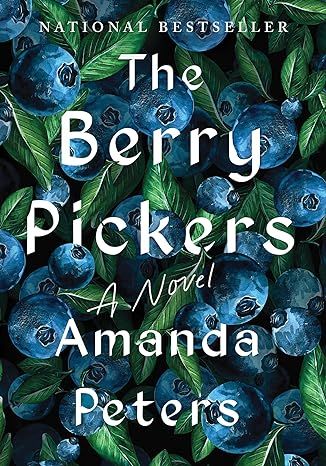
The Berry Pickers: A Novel
4.5
-
14,209
$14.99

Elon Musk
4.7
-
15,272
$16.99

Just for the Summer
4.6
-
19,524
$11.99
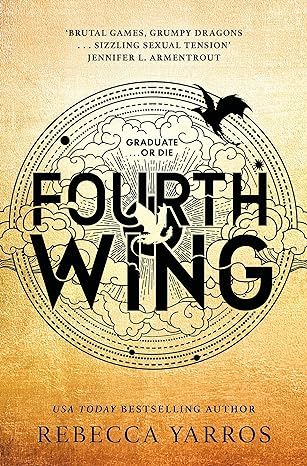
Fourth Wing (International Edition)
4.8
-
206,495
$7.95
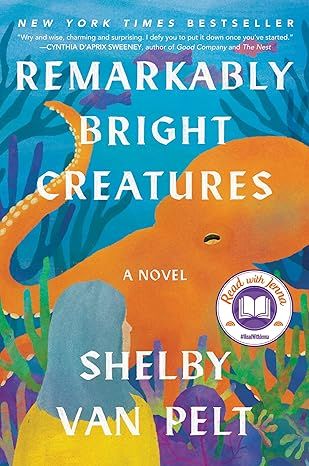
Remarkably Bright Creatures: A Read with Jenna Pick
4.6
-
65,556
$15.80
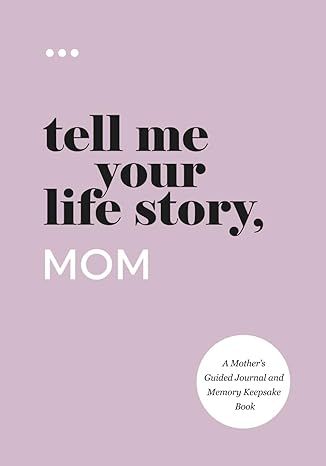
Tell Me Your Life Story, Mom: A Mother’s Guided Journal and Memory Keepsake Book (Tell Me Your Life Story® Series Books)
4.7
-
5,107
$11.24
